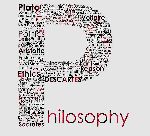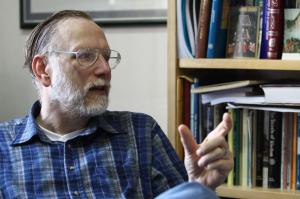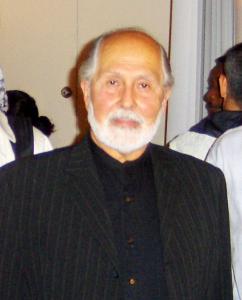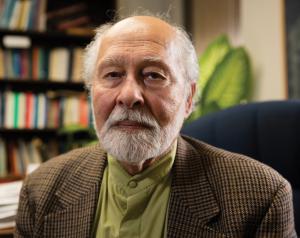General Articles
A Treatise On Seeking Knowledge
- Published at
-
- Author:
- Zoheir Ali Esmail
- Source:
- www.al-islam.org

Seeking knowledge is a distinctly human act, intertwined with the very nature of the human being who is curious and cannot help but think. We seek answers to the questions that are important to us and inherently recognise the value of knowledge. Knowledge helps us solve our doubts and problems. It is natural to seek knowledge from those who know and to respect the possessors and teachers of knowledge. But our material existence means that sometimes we prioritize certain types of knowledge and ignore others. Whereas perhaps the knowledge that is ignored is of more benefit than the knowledge we actively seek.
Theoretical Foundations of Development And Socio-Educational Change; A Historio-Analytical Approach
- Published at
-
- Author:
- Abbas Ali Shameli (PhD)
- Source:
- www.al-islam.org
 An understanding of socio-educational change in any culture rests on a fundamental basis in the theoretical frameworks of both spheres. To reach this understanding, I have investigated in this paper the Western tradition and incorporated pre-modern (classic), modern and postmodern perspectives. The main concentration, however, has been the modern period. My goal has been to examine the possible link between theories of social and educational change and arrive at the point of comparison between Islamic and Western perspectives in my next researches. I have selectively reviewed the history of Western theoretical development to discover the origins of present heterogeneous orientations in socio-educational change. The educational concentration is more explicit in theories that convey educational connotations.
An understanding of socio-educational change in any culture rests on a fundamental basis in the theoretical frameworks of both spheres. To reach this understanding, I have investigated in this paper the Western tradition and incorporated pre-modern (classic), modern and postmodern perspectives. The main concentration, however, has been the modern period. My goal has been to examine the possible link between theories of social and educational change and arrive at the point of comparison between Islamic and Western perspectives in my next researches. I have selectively reviewed the history of Western theoretical development to discover the origins of present heterogeneous orientations in socio-educational change. The educational concentration is more explicit in theories that convey educational connotations.
Mysticism in Arabic and Islamic Philosophy
- Published at
-
- Source:
- http://www.iep.utm.edu/div-simp/
 Mysticism in the Islamic context has traditionally been intertwined with the notion of Ḥikmah, which is at once both wisdom and philosophy (Nasr 1996). The source of mysticism and the mystical elements in Islam are to be traced to the Qur’an and the Islamic doctrine itself.
Mysticism in the Islamic context has traditionally been intertwined with the notion of Ḥikmah, which is at once both wisdom and philosophy (Nasr 1996). The source of mysticism and the mystical elements in Islam are to be traced to the Qur’an and the Islamic doctrine itself.
Book Review: An Ocean without Shore: Ibn ‘Arabi, the Book and the Law
- Published at
-
- Author:
- Mohammed Rustom
- Source:
- www.muslimphilosophy.com
 Although Ibn ‘Arabi has been the most influential Muslim thinker for the past eight centuries, his works being read by devotees spanning from Malaysia to North America, the overall unity or coherence of his writings have not received systematic attention. Michel Chodkiewicz’s An Ocean without Shore: Ibn ‘Arabi, the Book and the Law, originally published in French under the title Un océan sans rivage: Ibn ‘Arabî, le Livre et la Loi (Paris, 1992), is the first recorded attempt to analyze the ‘architecture’ of the Shaykh’s writings. At the same time, this study examines Ibn ‘Arabi’s Qur’anic and legal hermeneutics. What becomes immediately apparent when reading An Ocean without Shore is that the centrality of the Qur’an in the writings of Ibn ‘Arabi entails that any treatment of the organization of his oeuvre a fortiori requires a prior exposition of his understanding of the Qur’an, and, by extension, the shari‘a
Although Ibn ‘Arabi has been the most influential Muslim thinker for the past eight centuries, his works being read by devotees spanning from Malaysia to North America, the overall unity or coherence of his writings have not received systematic attention. Michel Chodkiewicz’s An Ocean without Shore: Ibn ‘Arabi, the Book and the Law, originally published in French under the title Un océan sans rivage: Ibn ‘Arabî, le Livre et la Loi (Paris, 1992), is the first recorded attempt to analyze the ‘architecture’ of the Shaykh’s writings. At the same time, this study examines Ibn ‘Arabi’s Qur’anic and legal hermeneutics. What becomes immediately apparent when reading An Ocean without Shore is that the centrality of the Qur’an in the writings of Ibn ‘Arabi entails that any treatment of the organization of his oeuvre a fortiori requires a prior exposition of his understanding of the Qur’an, and, by extension, the shari‘a
The Interaction of Philosophy and Dogma
- Published at
-
- Author:
- Majid Fakhry
- Source:
- http://www.muslimphilosophy.com
 As we mentioned earlier, the rise of Scholastic theology in the middle of the eighth century was the outcome of a new spirit of inquiry, which the introduction of Greek philosophy in the Muslim world had sparked. In some cases, however, the interaction of philosophy and dogma resulted in a gradual cleavage between the two. The systematic philosophers, like al-Farabi and Ibn Sina, tried hard to lessen the effect of such cleavage by emphasizing the areas of agreement and the common concerns of philosophy and dogma. Some, such as al-Kindi, went so far as to espouse the cause of dogma almost unconditionally and sought to erect a compact intellectual edifice on the foundation of dogma.
As we mentioned earlier, the rise of Scholastic theology in the middle of the eighth century was the outcome of a new spirit of inquiry, which the introduction of Greek philosophy in the Muslim world had sparked. In some cases, however, the interaction of philosophy and dogma resulted in a gradual cleavage between the two. The systematic philosophers, like al-Farabi and Ibn Sina, tried hard to lessen the effect of such cleavage by emphasizing the areas of agreement and the common concerns of philosophy and dogma. Some, such as al-Kindi, went so far as to espouse the cause of dogma almost unconditionally and sought to erect a compact intellectual edifice on the foundation of dogma.
Islam and the West, Recovering the Keys to Openness
- Published at
-
- Author:
- Mohammed Abed Al-Jabri interviewed by Nina zu Fürstenberg
- Source:
- www.resetdoc.org
 "Are we perhaps condemned to remain prisoners of the logic of war that cannot perceive relations with others if not in terms that bring to mind hostility, such as peril, counter-position, conflict, threat etc.? In Western countries voices are raised almost everywhere against this way of seeing future relations between the West and other countries. People are starting to question the real meaning of this unfortunate dichotomy, as well as the reality it proposes to conceal. What does the East/West duality really mean through the history of European expansion, from Rome to the empires of modern colonialism? What does its current North/South replacement mean?" Part of this interview with Mohammed Abed Al Jabri was published in Fall 2006 by our Italian magazine Reset. On the occasion of the commemoration of the philosopher's fifth anniversary (d.2010), we are pleased to publish the full interview for the first time.
"Are we perhaps condemned to remain prisoners of the logic of war that cannot perceive relations with others if not in terms that bring to mind hostility, such as peril, counter-position, conflict, threat etc.? In Western countries voices are raised almost everywhere against this way of seeing future relations between the West and other countries. People are starting to question the real meaning of this unfortunate dichotomy, as well as the reality it proposes to conceal. What does the East/West duality really mean through the history of European expansion, from Rome to the empires of modern colonialism? What does its current North/South replacement mean?" Part of this interview with Mohammed Abed Al Jabri was published in Fall 2006 by our Italian magazine Reset. On the occasion of the commemoration of the philosopher's fifth anniversary (d.2010), we are pleased to publish the full interview for the first time.
The Relationship between Philosophy and Theology in the Postmodern Age
- Published at
-
- Author:
- Muhammad Legenhausen
- Source:
- www.al-islam.org
 When I was a student at a Catholic high school in Queens, New York, I was taught that although philosophy is the mother of the sciences, she is also the handmaid of theology. Sometimes the dialogue between philosophy and theology may have seemed to have taken the form of orders given by the theological mistress to her erudite but obedient maid, but that was a long time ago, if ever it was at all.
When I was a student at a Catholic high school in Queens, New York, I was taught that although philosophy is the mother of the sciences, she is also the handmaid of theology. Sometimes the dialogue between philosophy and theology may have seemed to have taken the form of orders given by the theological mistress to her erudite but obedient maid, but that was a long time ago, if ever it was at all.
The West and Islam: Clash Points and Dialogues: Features of the New Islamic Discourse: Some Introductory Remarks
- Published at
-
- Author:
- Dr. Abdelwahab M. Elmessiri (Ain Shams University)
- Source:
- http://www.muslimphilosophy.com
 Some people tend to view Islam as if it were a monolithic or one-dimensional entity. Islam is undoubtedly the faith of transcendental monotheism, the belief in Allah, (the one and only God), who transcends both man and nature. But monotheism does not lead to monism; on the contrary, it leads to plurality and diversity.
Some people tend to view Islam as if it were a monolithic or one-dimensional entity. Islam is undoubtedly the faith of transcendental monotheism, the belief in Allah, (the one and only God), who transcends both man and nature. But monotheism does not lead to monism; on the contrary, it leads to plurality and diversity.
Knowledge and Immortality in Spinoza and Mulla Sadra
- Published at
-
- Author:
- Catherine Wilson
- Source:
- http://www.muslimphilosophy.com
 For the most part, we English-speaking historians of 17th century philosophy continue in a state of relative ignorance of the history of Arabic and Jewish philosophy. The works of Sadr a-Din Shirazi or Mulla Sadra are a case in point. Most of his works have not been translated. And, despite some useful studies and surveys, an analytical literature of interest to philosophers is still missing, as Hossein Ziai has noted.
For the most part, we English-speaking historians of 17th century philosophy continue in a state of relative ignorance of the history of Arabic and Jewish philosophy. The works of Sadr a-Din Shirazi or Mulla Sadra are a case in point. Most of his works have not been translated. And, despite some useful studies and surveys, an analytical literature of interest to philosophers is still missing, as Hossein Ziai has noted.
Ontological Argument Revisited by Two Ottoman Muslim Scholars
- Published at
-
- Author:
- Ümit Dericioglu
- Source:
- http://www.muslimphilosophy.com
 St. Anselm 'sfamous ontological argument has been disputed by many Western Philosophers to our day. However, this discussion seemed to have been limited to Western Philosophy until I have recently come across the opinions of two great Ottoman Muslim scholars. Since they were raised with a strong traditional Islamic education which taught rich philosophical and theological heritage of Islam, their accounts for the ontological argument are quite interesting. Their opinions are not known very much in the West, perhaps mostly because they wrote in Ottoman Turkish and Arabic. The objective of this article is to make their opinions available in English for those who are interested in this dispute.
St. Anselm 'sfamous ontological argument has been disputed by many Western Philosophers to our day. However, this discussion seemed to have been limited to Western Philosophy until I have recently come across the opinions of two great Ottoman Muslim scholars. Since they were raised with a strong traditional Islamic education which taught rich philosophical and theological heritage of Islam, their accounts for the ontological argument are quite interesting. Their opinions are not known very much in the West, perhaps mostly because they wrote in Ottoman Turkish and Arabic. The objective of this article is to make their opinions available in English for those who are interested in this dispute.
The Qur'an and Hadith as Source and Inspiration of Islamic Philosophy
- Published at
-
- Author:
- Seyyed Hossein Nasr
- Source:
- www.muslimphilosophy.com
 Viewed from the point of view of the Western intellectual tradition, Islamic philosophy appears as simply Graeco-Alexandrian philosophy in Arabic dress, a philosophy whose sole role was to transmit certain important elements of the heritage of antiquity to the medieval West.
Viewed from the point of view of the Western intellectual tradition, Islamic philosophy appears as simply Graeco-Alexandrian philosophy in Arabic dress, a philosophy whose sole role was to transmit certain important elements of the heritage of antiquity to the medieval West.
Primer on Islam and the Problem of Causation, Induction, and Skepticism
- Published at
-
- Author:
- Macksood Aftab
- Source:
- http://www.muslimphilosophy.com
 Al-Ghazali is one of the most influential philosophers the world has ever seen, and has been called the most original philosopher of Islam. His demolition of Greek philosophy in Tahafutal-Falsafa (The Incoherence of the Philosophers) is considered a turning point in the history of philosophical thought. It is fascinating that al-Ghazali adopts the methods of logic and reason (i.e. philosophy itself) to demonstrate that the conclusions of Neoplatonic thinkers are invalid
Al-Ghazali is one of the most influential philosophers the world has ever seen, and has been called the most original philosopher of Islam. His demolition of Greek philosophy in Tahafutal-Falsafa (The Incoherence of the Philosophers) is considered a turning point in the history of philosophical thought. It is fascinating that al-Ghazali adopts the methods of logic and reason (i.e. philosophy itself) to demonstrate that the conclusions of Neoplatonic thinkers are invalid
Philosophical Pluralism in the Service of Humane Governance
- Published at
-
- Author:
- Norman K. Swazo; University of Alaska, Fairbanks: ffnks@aurora.alaska.edu
- Source:
- http://web.archive.org
 In recent times, the American Philosophical Association has been exposed in a serious way to the issue of pluralism in philosophy curriculums in the departments of philosophy of American universities and colleges.
In recent times, the American Philosophical Association has been exposed in a serious way to the issue of pluralism in philosophy curriculums in the departments of philosophy of American universities and colleges.
"Islamic Philosophy" from " Routledge Encyclopedia of Philosophy"
- Published at
-
- Author:
- LEAMAN, OLIVER
- Source:
- http://www.rep.routledge.com/article/H057
 Islamic philosophy may be defined in a number of different ways, but the perspective taken here is that it represents the style of philosophy produced within the framework of Islamic culture. This description does not suggest that it is necessarily concerned with religious issues, nor even that it is exclusively produced by Muslims.
Islamic philosophy may be defined in a number of different ways, but the perspective taken here is that it represents the style of philosophy produced within the framework of Islamic culture. This description does not suggest that it is necessarily concerned with religious issues, nor even that it is exclusively produced by Muslims.
Islam, Postmodernity and Freedom
- Published at
-
- Author:
- Muqtedar Khan, Ph.D.
- Source:
- www.ijtihad.org
 A question asking for any definition that is universal implies the existence of an essential quality that transcends local context. This would according to the postmodern dogma constitute an unforgivable sin. The primary moral agenda behind postmodern attempts to destabilize the foundations of modern knowledge and modern ethics is to challenge essential theorizing claiming universal applicability. The postmodern thinker seeks to privilege the now and the here – the local over the global.
A question asking for any definition that is universal implies the existence of an essential quality that transcends local context. This would according to the postmodern dogma constitute an unforgivable sin. The primary moral agenda behind postmodern attempts to destabilize the foundations of modern knowledge and modern ethics is to challenge essential theorizing claiming universal applicability. The postmodern thinker seeks to privilege the now and the here – the local over the global.
Islam and Modern Science: A Lecture by Seyyid Hossein Nasr
- Published at
-
- Author:
- Seyyid Hossein Nasr
- Source:
- http://www.muslimphilosophy.com
 The following is a lecture by Seyyid Hossein Nasr entitled, ``Islam and Modern Science’’, which was co-sponsored by the Pakistan Study Group, the MIT Muslim Students Association and other groups. Professor Nasr, currently University Professor of Islamic Studies at Georgetown University, is a physics and mathematics alumnus of MIT.
The following is a lecture by Seyyid Hossein Nasr entitled, ``Islam and Modern Science’’, which was co-sponsored by the Pakistan Study Group, the MIT Muslim Students Association and other groups. Professor Nasr, currently University Professor of Islamic Studies at Georgetown University, is a physics and mathematics alumnus of MIT.
HUNAYN IBN ISHAQ AL-‘IBADI: A Great Translator form Greek to Arabic
- Published at
-
- Source:
- http://www.muslimphilosophy.com
 Abu Zayd Hunayn Ibn Ishaq al-‘Ibadi, the celebrated physician, was the most eminent man of his time in the art of medicine. He possessed a perfect acquaintance with the language of the Yunanis (Greeks)
Abu Zayd Hunayn Ibn Ishaq al-‘Ibadi, the celebrated physician, was the most eminent man of his time in the art of medicine. He possessed a perfect acquaintance with the language of the Yunanis (Greeks)
IBN KHALDUN: A Biography
- Published at
-
- Source:
- http://www.muslimphilosophy.com
 IBN KHALDUN (AH 732-808/1332-1406 CE), Muslim historian, famous as the first systematic theoretician of the social, economic, psychological, and religious forces that determine human history and society.
IBN KHALDUN (AH 732-808/1332-1406 CE), Muslim historian, famous as the first systematic theoretician of the social, economic, psychological, and religious forces that determine human history and society.
The Principle of Causality (from the Book of Our Philosophy)
- Published at
-
- Author:
- Ayatullah Muhammad Baqir as-Sadr, Translated by: Shams C. Inati
- Source:
- www.al-islam.org
 The principle of causality is one of the primary propositions known to people in their ordinary lives. This principle states that for everything there is a cause. It is one of the necessary rational principles; for (p. 808) a human being finds at the heart of his nature a motive that causes him to attempt to explain the things he encounters and to justify the existence of such things by disclosing their causes. This motive is inborn in human nature.
The principle of causality is one of the primary propositions known to people in their ordinary lives. This principle states that for everything there is a cause. It is one of the necessary rational principles; for (p. 808) a human being finds at the heart of his nature a motive that causes him to attempt to explain the things he encounters and to justify the existence of such things by disclosing their causes. This motive is inborn in human nature.
Can the Islamic Intellectual Heritage be Recovered?
- Published at
-
- Author:
- William C. Chittick
- Source:
- http://www.allamaiqbal.com
 By "the Islamic intellectual heritage" I mean the ways of thinking about God, the world, and the human being established by the Qur’ān and the Prophet and elaborated upon by generations of practicing Muslims. I use the term "intellectual" to translate the word ‘aqlī, and by it I want to distinguish this heritage from another, closely related heritage that also has theoretical and intellectual dimensions. This second heritage is the "transmitted" (naqlī ) heritage.
By "the Islamic intellectual heritage" I mean the ways of thinking about God, the world, and the human being established by the Qur’ān and the Prophet and elaborated upon by generations of practicing Muslims. I use the term "intellectual" to translate the word ‘aqlī, and by it I want to distinguish this heritage from another, closely related heritage that also has theoretical and intellectual dimensions. This second heritage is the "transmitted" (naqlī ) heritage.


